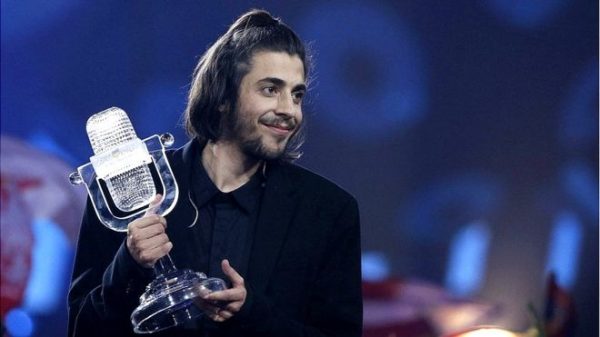
Photo by BBC
Love it or hate it, the Eurovision Song Contest is back in May and even if you don’t watch it, it’s hard not to keep up with the news during the build-up – and even harder to not know the result of the final itself, especially if you’re a social media addict. This year’s contest will be held in Tel Aviv after Netta Barzilai won last year’s competition in Lisbon. She recently released her latest single, her first since winning the contest last May. In homage to last year’s winner, we take a look back at the most recent winners and what they are doing now.
2017: Salvador Sobral (Portugal)
Salvador Sobral made history in 2017 when he gave Portugal their first ever win at the Eurovision Song Contest, ending the longest winless run by any country (53 years). After winning Eurovision, he announced via Facebook that he would take some time away, due to ill-health. He had a heart transplant in December 2017, leaving hospital the following month. But according to his Twitter, Salvador is releasing a new album and is performing at a number of venues this year.
2016: Jamala (Ukraine)
Following Jamala’s win in 2016, she was awarded the People’s Artist of Ukraine by the Ukrainian President, Petro Poroshenko. Her music career has continued to flourish, releasing two albums and releasing a handful of songs. Her Eurovision entry 1944 charted in 12 different countries but peaked at number two in the Ukrainian chart (not doing so well in the UK, reaching 289!). Away from music, she’s had cameo roles in film and TV.
2015: Måns Zelmerlöw (Sweden)
2015 winner Måns Zelmerlöw has been fairly busy since he won the contest with Heroes. Following performances at various festivals and embarking on a European tour, he also visited China and Australia. He co-presented the 2016 Eurovision Song Contest and performed two singles, before co-commentating on the 2017 competition. Earlier this month on Twitter, he revealed he’s been busy writing new music but will be releasing a new single for the first time in two-and-a-half years.
2014: Conchita Wurst (Austria)
The bearded drag queen became widely recognised due to her appearance; however, has gone from strength-to-strength since winning the contest five years ago, particularly with regards to promoting the LGBT community. Away from music and her two Austrian number 1 albums, she has modelled for fashion designers including Jean Paul Gaultier and Givenchy; performed at the European Parliament in Brussels and United Nations Office in Vienna; and published an autobiography.
2013: Emmelie de Forest (Denmark)
After winning the 2013 Eurovision Song Contest with Only Teardrops, Emmelie was awarded the European of the Year award, by the Danish European Movement. The singer/songwriter’s Eurovision entry charted across Europe, reaching number 1 in Denmark and making the top 10 in six countries. She wrote the song for UK entrant Lucie Jones in the 2017 Eurovision Song Contest (which came 15th) and more recently, in February of last year, released her second album.
2012: Loreen (Sweden)
Loreen was a convincing winner in 2012 when her song Euphoria received 12 points from 18 different countries, but the single also reached number 1 in 17 different countries. Since her victory, Loreen has released two albums and an EP, as well as appearing as a featured artist for a number of Swedish artists and producers. She entered Sweden’s national selection programme in order to represent them in the 2017 Eurovision Song Contest, but lost out in the semi-finals. She has previously not been shy in speaking out against a number of political issues, including banning the death penalty in Belarus.
Think you can predict who will win this year’s Eurovision Song Contest? Find the latest odds: https://www.betfair.com/exchange/plus/special-bets/market/1.150883218.